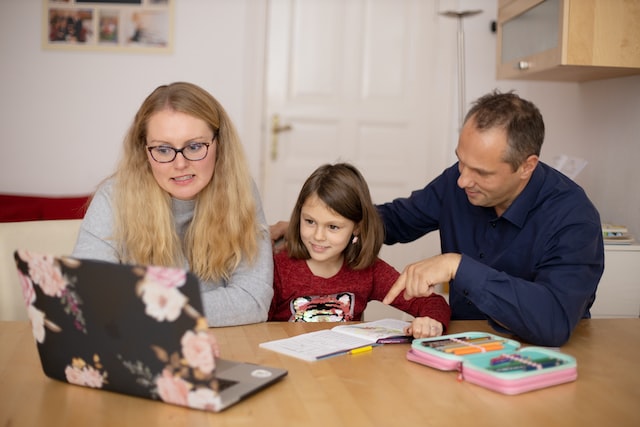While it’s true that many kids are generally fine with learning new subjects at school, some children may need extra support outside of the classroom. There’s also the fact that many kids are home-schooled.
Whatever the reason, if you need to give your children some extra tuition at home, the good news is that you can make that fun for everyone involved. Most kids will also relish the one-on-one learning experience as it can provide them more effective and tailored learning.
You’re probably reading this today because you need to give your child some extra educational support at home, or perhaps you want to start home-schooling them. Take a look at the following inspirational tips and tips to get you started:
Use Technology To Give You A Helping Hand
It’s no secret that technology can give you lots of help in your quest to provide your kids with enhanced educational support at home. When you choose the right tech-based learning tools, they will help each child’s creativity, communication skills, and thought processes.
The Internet is also undeniably a welcome addition to your educational arsenal. For instance, if your kids are learning about how water works on Earth, here is more info on how to teach that information via a fun, animated online video.
Play Educational Games With Your Kids
You likely know how everyone has their preferred learning styles, such as visual, aural, verbal, and physical. Whichever your child’s learning style, one thing is for sure: they would prefer their learning journey to be fun rather than dull!
Educational games, such as home-based and outdoors games, help kids learn various skills through engagement and help them boost their memory skills and attention spans. They also teach things like delayed gratification and respect for their peers.
Foster Their Creativity
Despite what you might hear from other people, all kids have creativity and it’s something they can develop from an early age. When you help to foster their creativity through learning at home, it will provide them with many benefits.
Examples include enabling them to express their thoughts and feelings, introducing them to new academic concepts, and boosting their self-esteem.
Try Hands-On Experiments And Activities
It’s one thing to talk about topics from a textbook, but it’s another to let kids experiment and try out concepts for themselves to see how things work in “real-life” scenarios!
Working with materials like paints, string, and clay helps children develop their fine motor skills. Creative activities show them how to hone their problem-solving skills. Plus, they can learn to express themselves in new ways, such as through music.
Don’t Forget To Use Flashcards
Lastly, flashcards are excellent educational tools for kids of all ages. They help improve their photographic memory, increase their attention span, and provide a visually-stimulating way to learn about new subjects (or ones they find challenging).
Conclusion
Hopefully the above ideas will help inspire you to make learning at home a fun and immersive experience for your kids. Make sure you have a dedicated area for their learning environment and keep it as comfortable and distraction-free as possible.

